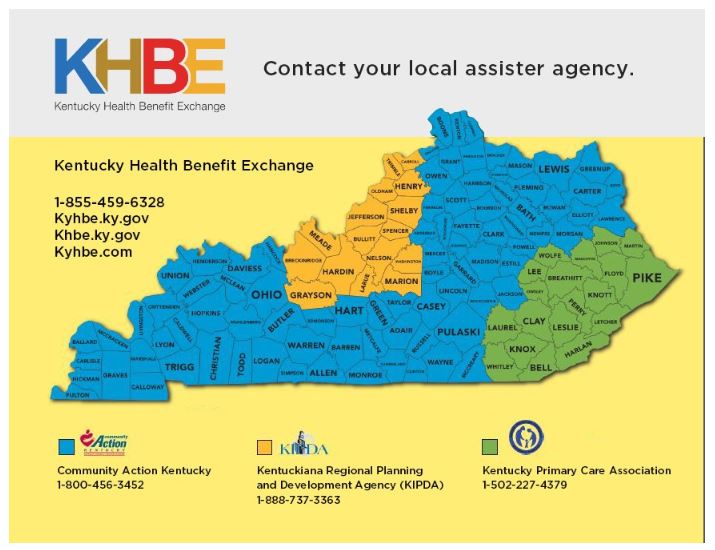Consumers should also be wary of plans that appear to meet the Patient Protection and Affordable Care Act standards, but actually don’t. That’s because President Trump’s administration, which has tried to weaken “Obamacare” after failing to repeal it, has loosened restrictions on plans that aren’t compliant with the ACA, called “short-term plans,” which are less expensive but offer less coverage.

The best way to make sure your plan is ACA-compliant is to shop on Healthcare.gov; if you are working through an insurance broker, say you want an ACA-compliant plan.
Where can I find help?
The state-based call center is available at 855-459-6328 to help assist Kentuckians with where to go for coverage, answer questions and pre-screen for eligibility. The Healthcare.gov customer service center (800-318-2596) is also available 24 hours a day, seven days a week. Click here to find an application assister or an insurance agent near you.
Carol Adkins, coordinator of community engagement and outreach for the Kentucky Primary Association, encouraged Kentuckians who are signing up for health insurance on Healthcare.gov to talk to an application assister each year before they sign up because plans often change and premiums and options fluctuate.
“Always make plans to meet with a free, certified application assister to help you apply or re-certify,” she said in an e-mail. “They are trained to help with the initial application, answer questions, explain options, assist with enrollments and more.”
She stressed that assisters are not agents and do not benefit in any way from your enrollment, but are simply there to help you with your application at no cost to you. She also noted that KPCA has assisters that specifically work on connecting children with coverage all over the state.
If you miss the deadline, the only way you’ll be eligible to enroll in or change your health plan for 2020 is if you qualify for a special enrollment period. To qualify for special enrollment, you must have a qualifying life event such as a change in family status (for example, marriage, divorce, birth, or adoption of a child), change in residence, or loss of other health coverage (such as loss of employer-based coverage, or loss of eligibility for Medicare or Medicaid).
(Kentucky Health News is an independent news service of the Institute for Rural Journalism and Community Issues, based in the School of Journalism and Media at the University of Kentucky, with support from the Foundation for a Healthy Kentucky.)
Melissa Patrick is a reporter for Kentucky Health News, an independent news service of the Institute for Rural Journalism and Community Issues, based in the School of Journalism and Media at the University of Kentucky, with support from the Foundation for a Healthy Kentucky. She has received several competitive fellowships, including the 2016-17 Nursing and Health Care Workforce Media Fellow of the Center for Health, Media & Policy, which allowed her to focus on and write about nursing workforce issues in Kentucky; and the year-long Association of Health Care Journalists 2017-18 Regional Health Journalism Program fellowship. She is a former registered nurse and holds degrees in journalism and community leadership and development from UK.






